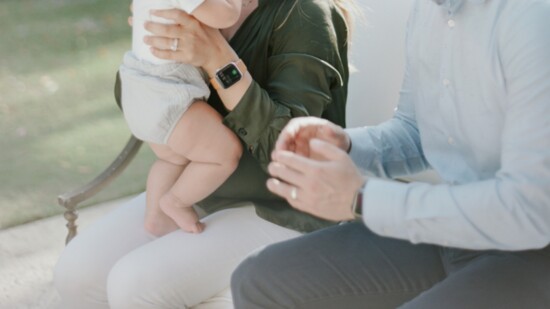Bee Kind Pediatrics new developmental patient rooms, designed by Dr. Rolnick herself, create age-appropriate environments that cater to the unique needs of children and adolescents. These thoughtfully crafted spaces foster a sense of safety and comfort, significantly reducing anxiety associated with medical visits. By incorporating engaging themes and interactive elements, these rooms encourage active participation in care.
They also support key developmental milestones, enhancing physical, cognitive, and social-emotional growth. For example, toddler rooms feature play areas to promote motor skills, while those for older children stimulate imagination and critical thinking. Ultimately, these developmental rooms facilitate healing and contribute to positive health outcomes for young patients.
Room 1 is for children aged 0-24 months, themed with beach/ocean fun. Equipped with Lovevery toy kits, it supports the evaluation of key developmental milestones, including physical growth like rolling over and walking, cognitive exploration through sensory experiences, and social-emotional bonding with caregivers. By the end of this stage, infants engage in parallel play, fostering a nurturing environment for their critical early development.
Room 2 caters to children aged 24 months to 6 years, featuring a safari theme. This space includes stairs for assessing gross motor skills and a kid-friendly desk for writing, pre-literacy, and fine motor skills development. Key physical milestones include improved coordination, running, hopping, and kicking a ball. Cognitively, children follow multi-step instructions and engage in imaginative play, while socially, they learn to share, take turns, and build friendships.
Room 3 is designed for children aged 6 to 13 years, featuring a Harry Potter theme that inspires imagination. It includes facilities for assessing annual labs, with a VR device for distraction. Key milestones involve enhanced coordination and sports participation, alongside cognitive development in abstract thinking and problem-solving. Socially, children form deeper friendships, navigate identity issues, and experience peer pressure during this critical developmental stage.
Room 4 is designed for adolescents aged 13 and older, featuring an adult-like medical setup to ease the transition to adult care. Physical growth continues with puberty, while cognitive development includes critical thinking and planning skills. Socially and emotionally, teens explore independence, navigate romantic relationships, and focus on future goals such as education and career aspirations, supporting their healthy development during this pivotal stage.
